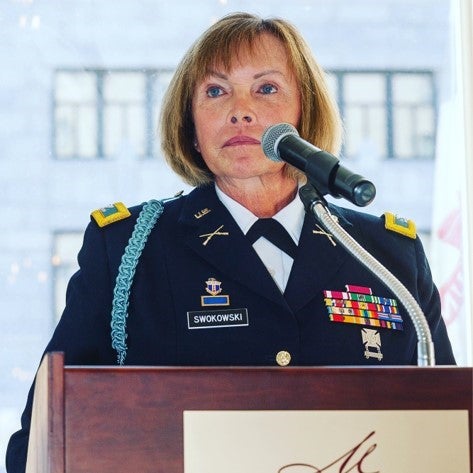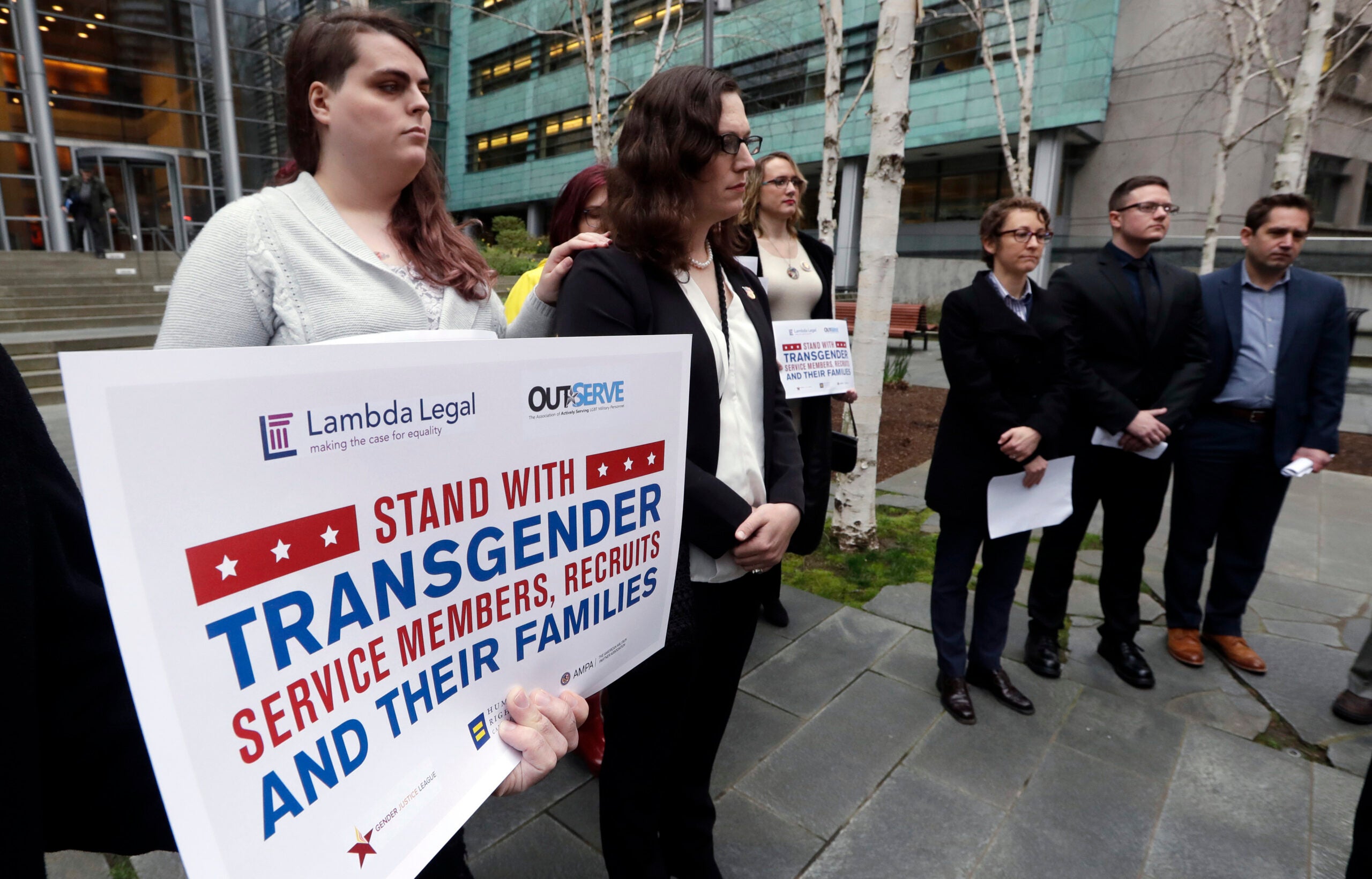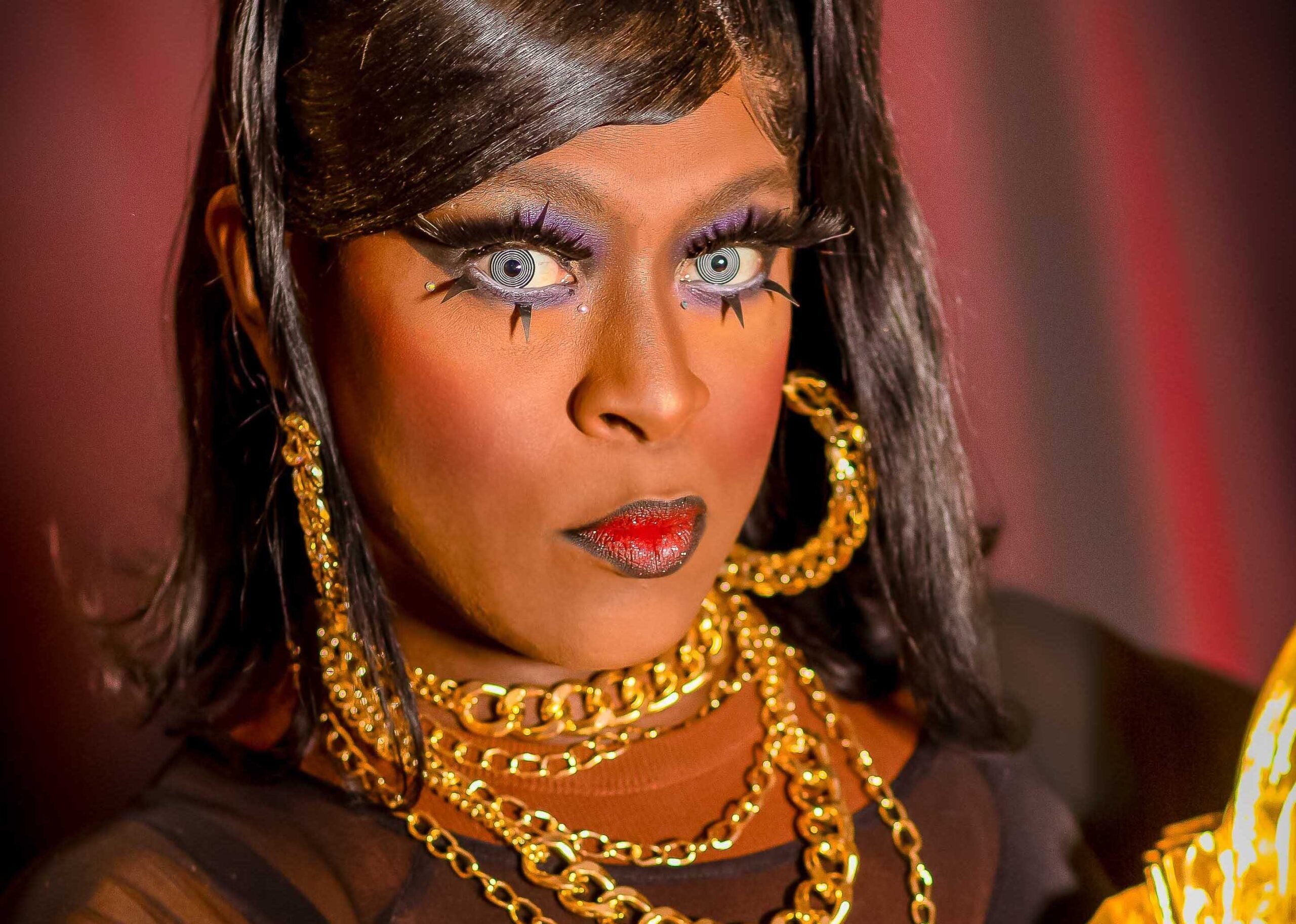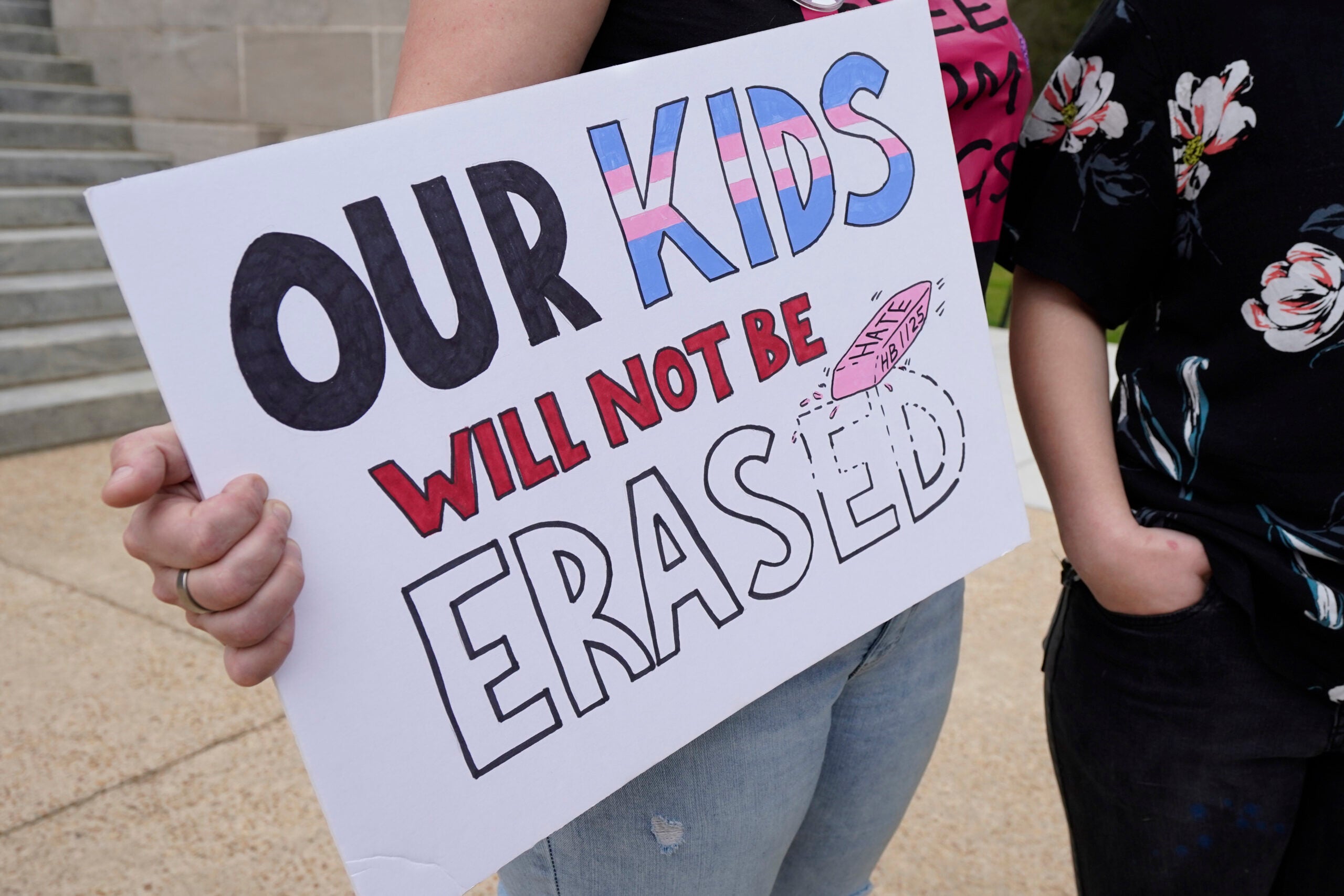To Sheri Swokowski, knowing her true gender identity was like knowing if she was right- or left-handed.
From early on, she knew her younger sister’s clothes felt more honest to herself than her own. As she got older, she would secretly buy and put on woman’s clothing in the safety of her locked apartment.
But that was usually on a weekend, and when Monday morning came around, it was time to put on the uniform of the U.S. Army.
Stay informed on the latest news
Sign up for WPR’s email newsletter.
“The guilt would set in, and I would purge those purchases,” she said on WPR’s “The Morning Show.”

Col. Sheri Swokowski, the highest ranking openly transgender veteran in the country, is from Manitowoc and lives in Windsor. She served in the Army for nearly 35 years, and she penned one of the essays in a new book, “With Honor and Integrity: Transgender Troops in Their Own Words.”
Swokowski joined the service in part because she wanted to take after her father, who she said enlisted to fight in World War II after he first put in communications equipment on submarines built in Manitowoc.
But she also first joined the Wisconsin Army National Guard and the local sheriff’s office because she thought being in a male-dominated field would “help me deal with the certainty I had that I was a woman, not a man,” she wrote in a 2017 piece for The Washington Post.
She wrote that piece in the wake of news that former President Donald Trump wanted to overturn former President Barack Obama’s order that let transgender servicemembers be open about their identities. Trump had said allowing transgender members to serve openly would be a “disruption.”
“Apparently, he doesn’t think transgender Americans are capable or worthy of defending our nation,” Swokowski wrote of Trump. “But he’s wrong. Thousands of patriotic transgender Americans already put their lives on the line every day to keep our country free. We’ve been doing that since the 1700s.”
In 2004, Swokowski retired and became an instructor with the Army’s Force Management School in Virginia. She worked there when she decided to transition. For that process, she took six weeks off work, and she said she would return “as my authentic self.”
But when she came back, she said her director — a retired three-star general — shook her hand, thanked her for coming back and said, “We’ve already hired your replacement.”
“That was quite a shock to me,” she said. “I had to do some soul-searching after that.”
Originally, she wanted to “blend into society,” according to her essay from the book. Her firing changed that.
“Since then, it’s been about making things easier for those who follow,” she wrote.
She then joined the Pentagon as a senior analyst. As a civilian, she said she was free to work as herself after all.
Swokowski was also able to become more of a public-facing advocate. She worked with U.S. Sen. Tammy Baldwin, D-Wisconsin, on civil rights back in 2008, when Baldwin was in the House of Representatives.
“I have and will continue to advance the fight for equality,” she wrote. “The military teaches us to fight; (the Department of Defense) and other organizations shouldn’t be surprised when we do.”
Bree Fram is a lieutenant colonel in the U.S. Space Force and president of SPARTA, an advocacy group for transgender people in the military. She, along with sociology professor Máel Embser-Herbert, edited the new book that includes Swokowski’s essay.
Fram said “thankfully” no one is fired from their military positions solely because they are transgender anymore. But before policies were put in place to stop that, she said “we did lose a lot of people,” such as the gay, lesbian and bisexual members who could not serve during the Don’t Ask Don’t Tell era.
“(If) we’re not willing to bring in a servicemember with an incredible brain that just happens to be in a transgender body, we are not doing all we can to protect and defend this nation,” Fram said.
Swokowski in her essay reflected on what her military career could have looked like if she was allowed to transition earlier. She said the military wasn’t ready to even acknowledge the existence of transgender servicemembers back then.
But now, she said there’s no reason a transgender person cannot go on to become one of the generals in the future. Young members out there are about to truly put service ahead of their individual needs, she said.
“It’s military values,” she continued. “Right now, their potential is unlimited. So, it’s a wonderful thing, and I’m extremely happy for them.”
Wisconsin Public Radio, © Copyright 2024, Board of Regents of the University of Wisconsin System and Wisconsin Educational Communications Board.





